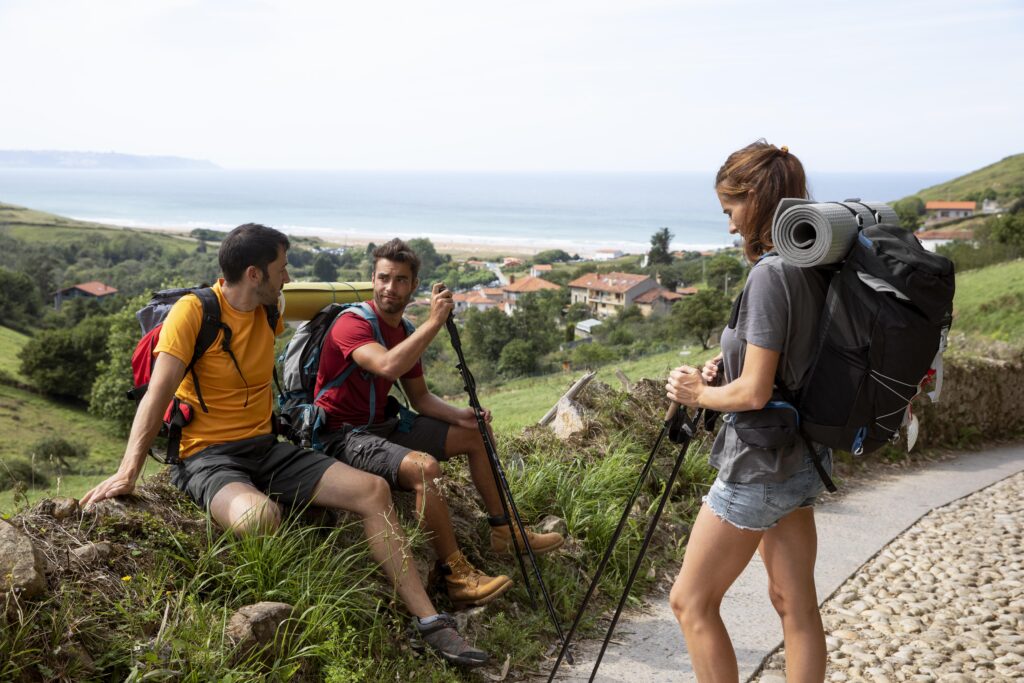Traveling has long been a popular pastime for people all around the world. The thrill of exploring new places, immersing oneself in different cultures, and creating lasting memories is an experience that many cherish. However, in recent years, there has been a growing trend towards more meaningful travel experiences that go beyond mere sightseeing. Volunteer tourism, also known as voluntourism or ethical tourism, is an emerging concept that allows travelers to make a positive impact on communities while satisfying their desire for adventure. In this article, we will explore the concept of volunteer tourism, its benefits, and how individuals can get involved to make a difference.
What is Volunteer Tourism?

Volunteer tourism involves combining the elements of travel and community service. Rather than simply being a passive observer, volunteer tourists actively engage in projects and activities aimed at benefiting local communities. The projects can range from teaching English, building infrastructure such as schools or water wells, environmental conservation efforts, working in orphanages, or even medical missions. The duration of volunteer tourism trips can vary from a few days to several weeks or even months, depending on the individual’s availability and commitment.
Benefits of Volunteer Tourism
Meaningful Impact: One of the primary advantages of volunteer tourism is the ability to create a meaningful impact on the communities visited. By working directly with local organizations and communities, volunteers can contribute to sustainability, social development, and environmental conservation initiatives. Whether it’s teaching vital skills, improving access to clean water, or supporting endangered wildlife, these initiatives can have a lasting positive effect on the lives of those in need.
You Can Read Our Another Post Beauty Of The Sunderbans National Park in West Bengal
Cultural Exchange: Volunteer tourism offers a unique opportunity for cultural exchange. By living and working alongside locals, volunteers gain a deeper understanding and appreciation of the host culture. They learn about traditions, customs, and daily life, fostering mutual respect and understanding between different cultures. This exchange enriches the volunteer’s experience and helps to break down stereotypes and prejudices.

Personal Growth: Engaging in volunteer tourism can be a transformative experience for individuals. It provides an opportunity to step out of one’s comfort zone, face challenges, and develop new skills. Volunteers often find themselves pushed beyond their limits, gaining confidence, resilience, and empathy along the way. This personal growth can have a profound impact on the volunteer’s outlook on life and their sense of social responsibility.

Travel with Purpose: Unlike traditional tourism, volunteer tourism allows travelers to go beyond the surface-level attractions and truly connect with local communities. By engaging in hands-on work, volunteers gain a deeper understanding of the challenges faced by the community and contribute to finding sustainable solutions. This purpose-driven travel experience creates a sense of fulfillment and satisfaction that goes beyond the typical tourist experience.
Getting Involved in Volunteer Tourism
Research and Planning: Before embarking on a volunteer tourism journey, it is crucial to conduct thorough research. Identify the cause or project that resonates with you and aligns with your skills and interests. Look for reputable organizations that have a track record of responsible and ethical practices. Ensure that the organization is transparent about how they utilize resources and funds, and that the projects are genuinely beneficial to the local community.
Skills Assessment: Assess your own skills and strengths to determine how you can make the most significant impact during your volunteer experience. Are you skilled in teaching, construction, healthcare, or environmental conservation? By leveraging your expertise, you can contribute effectively and maximize the benefit to the community.
Duration and Commitment: Consider the time commitment you can realistically make. Some volunteer programs require a minimum stay to ensure continuity and effectiveness. Longer-term commitments may allow for more substantial contributions and a deeper connection with the community. However, even short-term volunteering can make a difference, especially if it addresses immediate needs or supports ongoing projects.
More: Wanted to download Odisha Magazines, visit here
Responsible Tourism: While engaging in volunteer tourism, it is essential to be mindful of responsible and ethical practices. Respect local customs, traditions, and beliefs. Avoid perpetuating harmful stereotypes or exploiting vulnerable communities. Be aware of the potential unintended consequences of your actions and strive to leave a positive impact during your stay.
Conclusion

Volunteer tourism offers a unique opportunity for travelers to make a difference while exploring new places. By actively participating in community-based projects, volunteers can create meaningful impacts, foster cultural exchange, and experience personal growth. However, it is crucial to approach volunteer tourism with careful research and planning, ensuring that the projects align with the needs of the community and are implemented responsibly. Volunteer tourism has the potential to transform not only the lives of those being served but also the lives of those who dare to embark on this rewarding journey. So, if you’re looking to travel with purpose, consider volunteer tourism as a way to make a positive difference in the world while satisfying your wanderlust.

